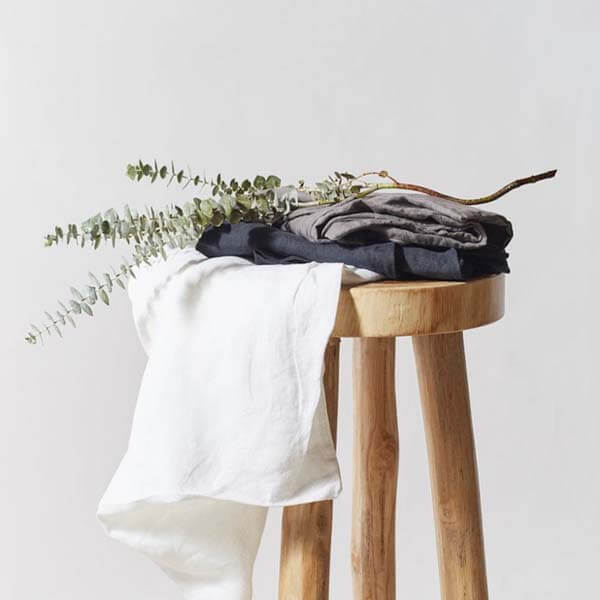Why choose Natural Fibres over Synthetics?
Our ethos at BIBICO has always been to champion natural fibres. Synthetics are so widely used in the world of fast fashion that over the years they became the norm and we as consumers became accustomed to accepting the use of acrylic, nylon and polyester in the manufacture of our clothes. And not just the cheap, supposedly disposable fashion garments but the expensive ones too.
Choosing clothing made of natural fibres is a much better option both for the environment and our health. It makes perfect sense when you think about it…

Natural fibres like linen or cotton are better for keeping us both cool and warm by allowing our skin to breath. The skin is the largest organ in the body and what we wear next to our skin can make a big difference to how we feel in different situations. Wearing naturally sourced fabrics like cotton can certainly help to keep us cool and well ventilated when the weather warms up and a wool jumper is soft, warm and breathable when you need to be cosy in winter. Synthetics trap heat against the skin, trapping sweat and allowing bacteria to develop and we can all guess where that leads. Yes, the dreaded body odour that is hard to shift once it becomes embedded in the fabric of synthetic garments.
Moreover, bacteria, sweat build up and chemicals in fabrics can also exacerbate skin irritations. People with sensitive skin, particularly babies and children are far better off wearing naturally derived fabrics so the skin can breathe and regulate its temperature.

Synthetic fibres such as polyester are derived from petroleum and the processes involved in its manufacture generates huge environmental pressures such as greenhouse gas emissions, air and water pollution. We know that climate change and global warming are the direct result of increased greenhouse gas emissions and our reliance on fossil fuels is unsustainable. Moving away from our reliance on these synthetics is widely recognised as an essential component for tackling climate change.

Until relatively recently we didn’t realise that washing our clothes was a source of huge environmental damage to our ecosystems. Every time we wash synthetic garments, thousands of microfibers are released into the water, which is then flushed away from our homes in our waste water and eventually ends up in our oceans. Because these micro-plastics cannot be readily broken down, they are ingested by fish which then end up in our food chain and are even traced in our drinking water.
Synthetic fabric manufacturing involves the use of vast quantities of chemicals, water and energy intensive processes which in turn have a far greater environment impact than the manufacture of natural fibres, which require far fewer processes and chemicals to become usable.
Did you know that many natural fibres are also naturally hypoallergenic? They can also have naturally occurring anti-bacterial and anti-fungal properties.

Durability is another brilliant reason to choose natural fibres. Synthetics can be far less robust when it comes to washing and wearing than natural fibres which can last for years if looked after properly. It’s also easier and more rewarding to repair a special cashmere jumper with a hole or a favourite linen shirt with a tear than a cheap synthetic garment which is often impossible to repair in a way that looks good or will last.

Also, natural fibres will naturally biodegrade over time once they have reached the end of their lifetime. Fabrics sourced from organic materials, using fewer chemicals will harmlessly breakdown over time. By contrast, synthetic fibres which are essentially plastics are predicted to take many hundreds of years to breakdown in landfill and like plastic bottles and food containers, they are very hard to recycle.

There are many things we can do to avoid fast fashion and the avalanche of synthetic clothing it generates each year. Here at BIBICO we would encourage you to buy better, look for the use of natural fabrics and look after your clothes. Wear things more than once before they head off to be washed. Gently hang wool jumpers to air them rather than washing them after one outing. And try to recycle, repurpose or resell clothing you no longer need rather than sending it to landfill. We can all play our part and it’s so good for our wellbeing as well as the environment if we do what we can to make a very simple change.


Leave a comment